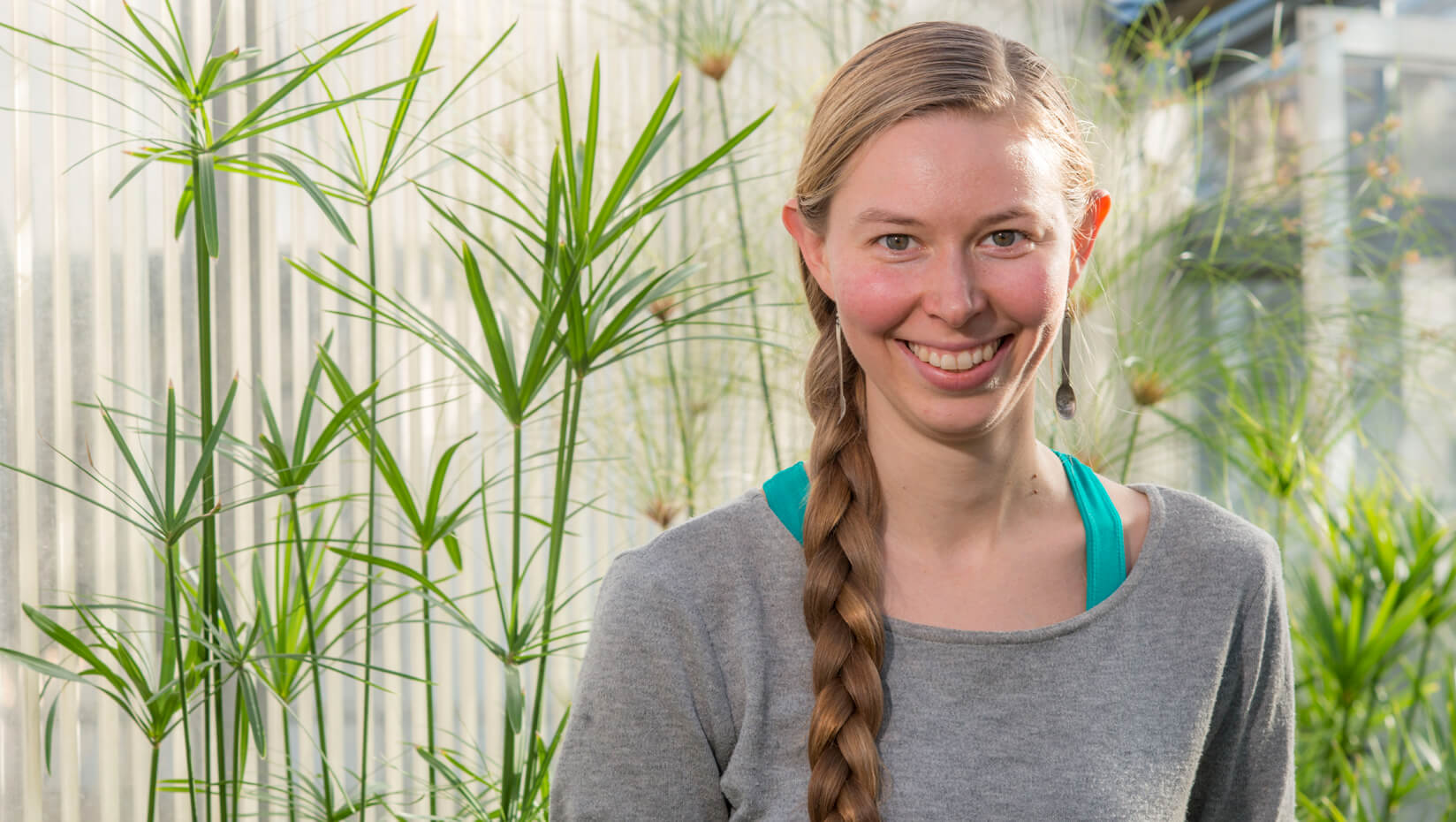
Sonja Birthisel: Helping farmers prepare for a changing climate
Sonja Birthisel, Ph.D. ecology and environmental sciences student, is committed to helping farmers better understand and plan for the future, specifically challenges they may face in light of climate change.
This year, Birthisel was awarded the prestigious Correll Fellowship for the 2015–16 academic year. She graduated with an M.S. in ecology and environmental sciences at UMaine in 2013, and began her Ph.D. studies in fall 2014.
Birthisel’s research, which focuses on how climate change may impact agricultural ecosystems in the Northeast, includes mathematical modeling, applied field research testing and agricultural weed management strategies that may benefit organic farmers.
Weeds are a top frequent management problem on vegetable farms, especially organic ones, says Birthisel. Her research has the potential to help organic and low-input farmers become more profitable and sustainable.
Her interest in agriculture was sparked at an early age when she worked on a small organic farm in Maine during middle and high school. While an undergraduate biology student at Luther College in Iowa, Birthisel observed the impact large-scale agriculture can have on the surrounding ecosystem.
“I learned how the corn and soybean fields surrounding Luther’s campus are major contributors to environmental catastrophes including climate change, oceanic dead zones, and the decimation of Iowa’s native ecosystems,” said Birthisel. “This made me appreciate the mindful, diversified, much more sustainable system of agriculture practiced on the organic farm I had worked at back home in Maine.”
Eric Gallandt, professor of weed ecology and management, is Birthisel’s adivser.
“Eric’s passion for helping Maine farmers be successful is a guiding force in our lab, and I really appreciate that the work that we do tends to be practical, with immediate real-world benefits,” said Birthisel.
Birthisel values that Gallandt encourages his students to work hard, and to have a healthy work-life balance.
Which is good, because Birthisel has a long list of hobbies. She enjoys singing with the Oratorio Society at UMaine, various forms of dance, acrobatic yoga, inter-faith activities at the Wilson Center, gardening, knitting, sewing, reading and walking in the woods with her dog.
One of Birthisel’s most-rewarding research experiences was getting her first paper published in a peer-reviewed journal. The paper, published in the journal Biological Control, described a study in which she tied up ground beetles on fishing wire “leashes” in order to measure predation by higher-order predators, which she says is a highly novel method.
“Having it immediately accepted felt like a huge validation of my scientific creativity,” said Birthisel. “It’s really exciting to learn something new about how the world works, and be able to share that with the scientific community.”
The Correll Fellowship includes a $25,000 award, a 12-month stipend of $19,500, a tuition waiver for as many as 19 credits and full health insurance during the 2015–16 academic year.
“It’s a tremendous honor, and I’m so grateful to all the people who have contributed to my education and helped me arrive where I am today,” said Birthisel.
“The interdisciplinary EES program has allowed me to choose a customized course load that has been both fun and intellectually challenging. My adviser Eric Gallandt has been the best mentor I could have asked for.”
